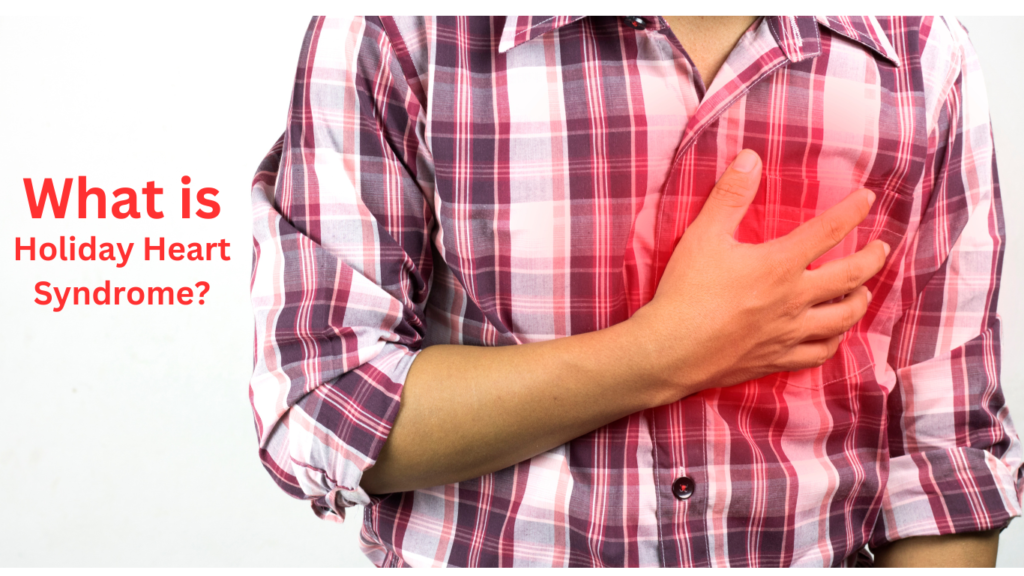
Holiday heart syndrome, also known as alcohol-induced atrial arrhythmias, is a syndrome defined by an irregular heartbeat associated with high levels of ethanol consumption. Holiday heart syndrome was discovered in 1978 when Philip Ettinger discovered the connection between arrythmia and alcohol consumption. It received its common name as it is associated with the binge drinking common during the holidays. It is unclear how common this syndrome is. 5-10% of cases of atrial fibrillation may be related to this condition, but it could be as high 63%
Symptoms and complications
The most common symptoms people with HHS have are heart palpitations and arrhythmia. People usually present with atrial fibrillation; however, other forms of arrythmia may be developed, such as atrial tachycardia, premature ventricular contraction, and atrial flutter. Patients with HHS also frequently report precordial pain, sweating, anxiety, shortness of breath, and syncope. Strokes and cardiac arrest can also occur in people with this syndrome. People with Holiday heart syndrome have a heightened risk of dilated cardiomyopathy, rhabdomyolysis, acute kidney injury, and electrical injuries. The heightened level of acetaldehyde this syndrome causes can result in mitochondrial dysfunction, valvular disease, oxidative damage, cell death, lowered effects of cardioprotective molecules, and an altered calcium transport and protein synthesis system. If left untreated, it can result in thrombosis, pneumonia, cirrhosis, and heart failure. For most patients with HHS the syndrome only lasts 24 hours. However for 26% of people with this syndrome, they reexperience an episode of it within the next year. To treat patients with this condition cardioversion or other treatments for arrhythmia are used.
Avoid Binge Drinking To Lower Your Risk of Holiday Heart Syndrome
Because drinking is so embedded in American culture, the general population often doesn’t recognize the true effect that alcohol intake has on the body, says Brown. That’s especially true for people with underlying heart disease.
The simplest way to avoid holiday heart syndrome is to limit your holiday drinking. The CDC recommends no more than one drink a day for women and two for men on days when alcohol is consumed, which shouldn’t be every day. But even staying within those limits may increase the risk of dying from certain cancers and cardiac disease, the CDC says.
Excessive amounts of alcohol can have big effects on the brain, kidneys, and heart. Limit your alcohol use this holiday season.
How is holiday heart syndrome treated?
It depends on your overall health. If your health already isn’t the best or unstable, your doctor will likely do cardioversion. This is when they use quick, low-energy shocks to reset your heart rhythm. They’ll also suggest you stop drinking altogether. Even if you can’t stop completely, studies show drinking less than 80 milligrams of alcohol per day may lower your risk of holiday heart.
If your overall health is good, the doctor will treat your arrhythmia and suggest you stop drinking.
